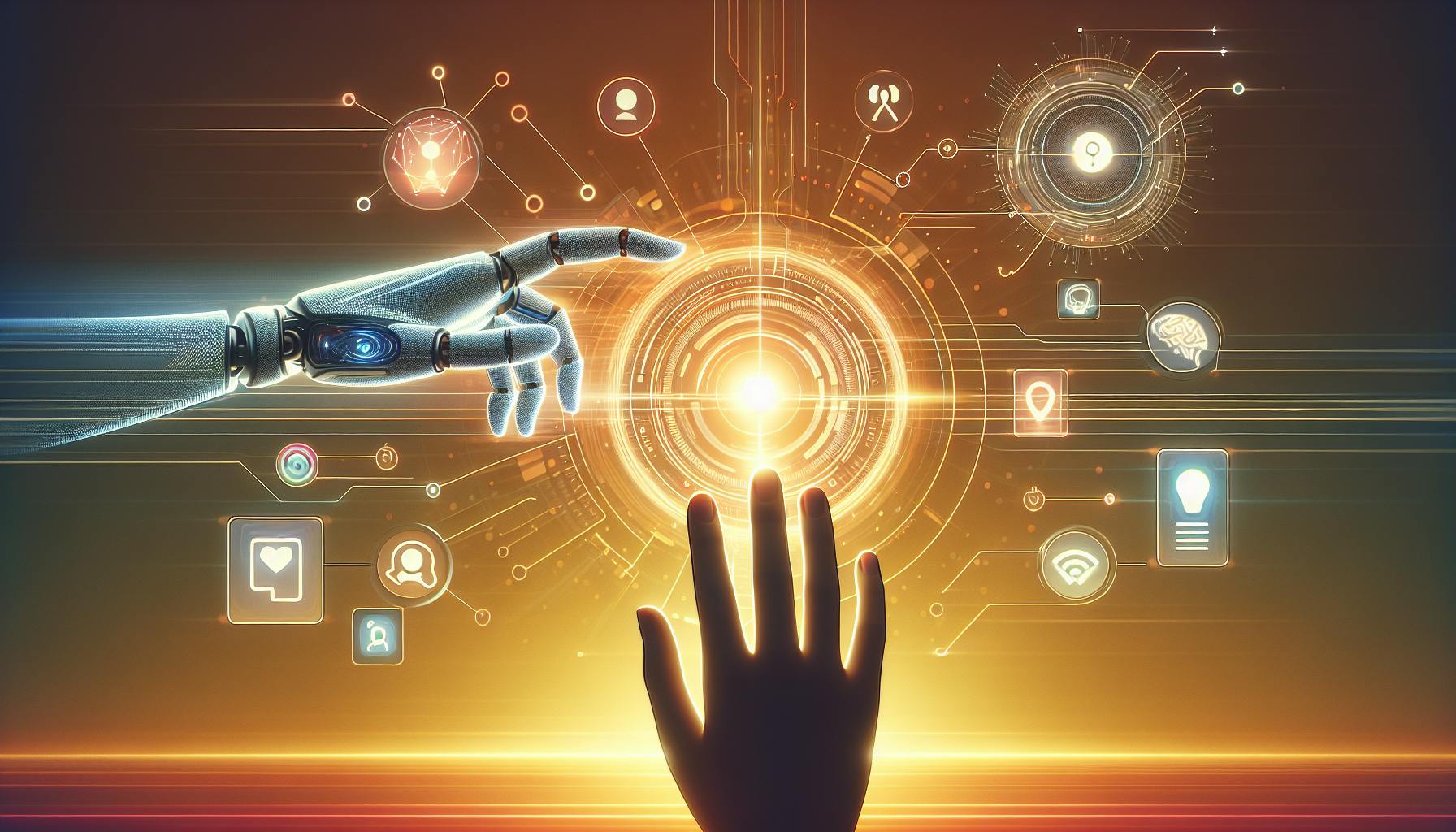The rise of AI-powered virtual agents is revolutionizing the customer service industry. With capabilities like 24/7 availability, personalization, and integration across channels, AI chatbots and virtual assistants are delivering more convenient, satisfying experiences for consumers. As adoption continues to accelerate, AI is rapidly emerging as a customer service must-have.
Introduction: AI Is Revolutionizing Customer Service
Artificial intelligence and virtual agent technology have transformed customer support over the past few years. According to Grand View Research, the global AI customer service market is projected to grow at an annualized rate of 25% from 2020 to 2027. Chatbots, virtual assistants, and other AI tools now deliver a level of convenience, consistency, and availability that far surpasses traditional methods.
With natural language processing (NLP), these systems can understand complex customer questions and requests. Impressive statistics show that by 2025, over 50% of customer service interactions will be completely handled by AI. As consumers increasingly expect instant, personalized, and always-on service, AI is driving major improvements across the industry.
Automating Simple Requests and Queries
One of the biggest advantages of AI-powered agents is the ability to fully automate simple, repetitive customer requests. Virtual assistants like Bold360 AI and IBM Watson Assistant can field common queries like checking an account balance, tracking an order status, or accessing usage statements.
For example, clothing retailer H&M uses Bold360 AI to answer routine customer questions about store hours, returns, and promotions. By leveraging natural language processing, these chatbots understand varied customer questions and provide the right response every time. Funneling these basic interactions away from human agents improves productivity and allows staff to focus on complex issues. The end result is faster, more efficient service.
Streamlining the Service Workflow
Beyond just answering simple questions, AI also assists human agents in providing quick, accurate resolutions. Virtual assistants surface relevant knowledge articles, analyze customer history, and make real-time suggestions to agents about best next actions.
Solutions like Ada and Boost.ai even optimize behind-the-scenes workflows. By automatically assigning support tickets to the right departments, these AI tools streamline routing and enhance first-contact resolution rates.
Allowing Self-Service Options
Intelligent FAQ databases and conversational virtual assistants empower customers to conveniently find answers on their own. Password resets, account updates, and other common requests can be handled via AI-powered self-service.
This expands customers' service options while providing instant, 24/7 resolutions. Leading solutions like eGain and Kore.ai deliver AI-enabled self-service across web, mobile, and messaging channels.
Delivering Personalized Experiences
With capabilities like sentiment analysis and leveraging customer data, AI chatbots can understand users' unique needs. They can then tailor responses and service interactions accordingly.
Platforms like Intercom and Clinc allow brands to deliver personalized promotions, account services, and support. AI builds individualized experiences from first contact and at every touchpoint.
Remembering Customers
Sophisticated AI solutions can create persistent user profiles, recalling previous interactions and individual preferences. With this “memory capability”, chatbots build relationships over time and enhance customer loyalty.
Chatbots from providers like ServisBOT leverage conversation histories and data to deliver tailored, context-aware experiences. Customers get service that feels more human and personalized.
Understanding Natural Language
With advanced natural language processing (NLP), AI chatbots can discern customer intent from unstructured, conversational dialog. They can interpret complex questions and requests, then respond appropriately.
Leaders in NLP like Rasa and Haptik allow customers to interact naturally while getting intelligent, precise answers. This provides an interface better aligned with human norms and expectations.
Providing 24/7 Availability
One of the most transformative capabilities of AI-driven chatbots is being able to offer customer service around the clock. By eliminating wait times and human unavailability, virtual agents deliver true 24/7, always-on support.
Solutions like ActiveChat allow businesses to consistently answer common service and sales queries at any time of day. This expands service coverage and improves the customer experience.
Scaling On Demand
In addition to constant availability, AI-powered platforms offer infinite, on-demand scalability. Chatbots easily scale to meet surges in demand, whether from seasonal spikes, promotions, or unexpected issues.
With instantly expandable AI systems like cognigy.com/" rel="nofollow" target="_blank">Cognigy and Conversica, brands can maintain quality service levels without concern of human agent overload or fatigue. This flexibility is especially important for global companies that need to cover extended hours.
Complementing Human Agents
While AI automation shines for common queries, human insight remains vital for complex issues. The most effective customer service approach combines responsive chatbots for routine transactions with skilled human representatives for specialty cases.
Hybrid solutions from leaders like Ultimate.ai and Nuance allow bots and people to play to their unique strengths. With AI handling tier-1 support, human staff are freed to focus on higher-value interactions. This balancing act is critical for maximizing operational efficiency.
Improving Operational Efficiency
The automated nature of AI chatbots directly translates into improved efficiency and lower costs per customer interaction. By reducing repetitive manual work, companies see faster response times, higher customer satisfaction, and significant savings.
Providers like Chatfuel and LivePerson offer proven options to reduce expenses and boost service productivity. AI is becoming a competitive necessity for brands struggling with rising customer expectations and engagement costs.
Centralizing Knowledge
AI makes it easy for companies to centralize their knowledge base and share information across all service agents. Knowledge management systems like Guru and WalkMe provide searchable internal wikis with curated answers to common questions.
This collective intelligence improves agent productivity, standardizes responses, and reduces repetitive training needs. By leveraging shared knowledge, both human staff and virtual bots deliver faster, more accurate service.
Generating Insights and Analytics
In addition to driving day-to-day efficiencies, AI solutions analyze all customer interactions to uncover actionable insights. Chatbot platforms like Chata.ai gather data on dialogues, resolutions, sentiment, and more.
These insights help brands identify pain points and opportunities to improve experiences. With data-driven understanding of customer needs, companies can implement targeted enhancements that directly address the most pressing issues.
Conclusion and Key Takeaways
The age of AI-driven customer service is clearly here. As the technology continues advancing, virtual agents offer brands the ability to provide 24/7 support, deliver personalized interactions, and significantly improve operational efficiency.
With capabilities that far surpass human limitations, AI chatbots are becoming a must-have for customer service. Their automated, infinitely scalable nature makes them the ideal solution for the growing challenges of an always-on, on-demand consumer base. When thoughtfully combined with human insight, they allow brands to offer customer experiences that were previously impossible.
AI-powered service, support, and sales interactions are rapidly emerging as the new competitive benchmark across industries. Companies that fail to adopt conversational AI technology will likely fall behind consumer expectations and lose out to savvier competitors. Virtual agents and chatbots represent the customer service frontier.

